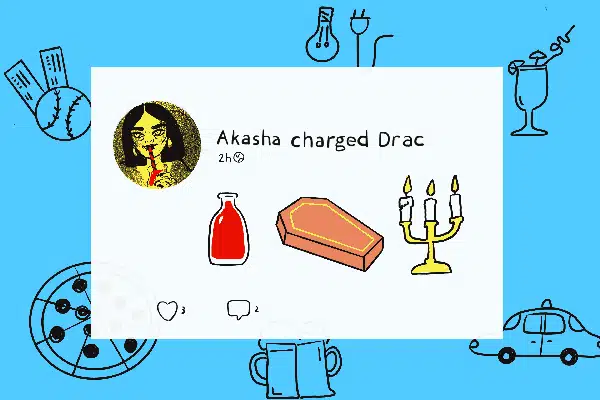Are You Being Rude on Venmo? Here's How to Use Payment Apps Without Being a Jerk

Welcome to Dollar Scholar, a personal finance newsletter written by a 27-year-old who’s still figuring it out: me.
Every week, I talk to experts about a money question I have, whether that’s “What if I don't have a 401(k)? or “How many credit cards do I need?” As I learn, I share simple ways to improve your financial life… and post cute dog photos.
This is (part of) the 25th issue. Check it out below, then subscribe to get future editions of Dollar Scholar every Wednesday.
Sitting cross-legged on the scorching sidewalk of 11th Street, I realized I was totally screwed.
One day last August, I had to wait in line for eight hours to get into to a Jonas Brothers concert. However, I hadn't planned well. The sun was beating down on my exposed legs and arms, and I'd forgotten sunscreen. I couldn't risk losing my spot, but I worried I'd be burned to a crisp by the time the band came on.
Suddenly, I overheard a conversation — two girls were headed to a nearby CVS for snacks. Wiping the sweat out of my eyes, I asked if they'd pretty please bring me back sunscreen if I promised to give them money.
Then I used the magic words: "I'll Venmo you."
It worked. They did buy me sunscreen, and I did reimburse them, sending $20 instantly on my iPhone. Their kindness, and a payment app, saved the day! (The show was great, too.)
With 40-plus million users on Venmo alone, payment apps are a way of life for millennials like me. I've used them to pay friends, family and strangers for mojitos, karaoke and Airbnbs. But for every prompt repayment I've given for sunscreen, there's an instance of me neglecting to pay a pal for pizza. I often wonder: Am I being rude on payment apps?
Myka Meier, author of Modern Etiquette Made Easy, told me it's a valid fear. Venmo and alternatives like Zelle and Cash are great because they take the awkwardness out of talking about money, but "you can rub someone the wrong way if you use them in the wrong way," Meier said.
This issue mostly comes up with in-app requests, which one person can use to notify another that they're on the hook for a specific amount. A recent survey from Hire a Helper found that 88% of people will hold an unresolved payment request against an acquaintance. That number only drops to 73% for a close friend.
I do take care of all my in-app payment requests expediently, so I feel all right about that aspect. But what's the protocol for being the requester?
I tend to drag my feet like I do with every other aspect of my life, though I suspect that's not good. A 2019 survey from Venmo confirmed my suspicions: People think requests should go out within 24 hours of the transaction, and requests should be completed within 24 hours of receipt. Meier, who's been working with Messenger from Facebook on social media guidelines, shortened the period even more.
"If you are asking or requesting money back, do it as soon after it's owed as possible," she says.
But I don't want my friends to think I'm stingy, either. I've read about how Thanks to Venmo, We Now All Know How Cheap Our Friends Are. Aside from time, is there a minimum dollar amount for requests? If a number is under a certain sum, should I just let it go?
In Meier's opinion, there's not a universal threshold. "If it's significant enough to you that you're thinking about it to request it, it's fine to request," she adds.
She explained that there's no reason to feel awkward about asking for reimbursement. Requesting payback is more about the pattern of behavior than anything. Ideally, splitting the check is something that should be agreed upon in advance by all parties.
As Meier put it: "If I say, 'Let's take a cab uptown together, and I'll pay for it, and you can just Venmo me,' that's absolutely fine. But if I say, 'Oh, I got this,’ and then later on you get this surprise Venmo request, that's where there's an issue."
Bottom line: My payment app manners are OK, but I should speed up the time frame for sending and completing requests.
I should also be more conscious of the public nature of the transaction. As much as I love/hate creeping on my friends'/enemies' lives via the social feed, I might want to make my payments private. At the very least, I should be careful about the emojis I use.
"To have good etiquette is to have respect and consideration for other people," Meier says. "If it doesn't feel right or might embarrass somebody, it's not right to ask in that way."
